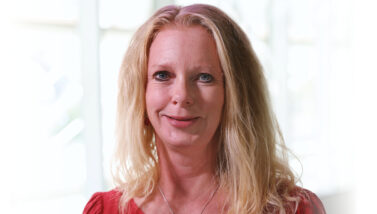Course Feature: PBH 346/MIL 346: Post Traumatic Stress Disorder: A Gathering Storm

Exposure to life-threatening events and violence is all too common in today’s world. PBH 346/MIL 346: Post Traumatic Stress Disorder: A Gathering Storm introduces students to the effects of trauma on human health and relationships; specifically focusing on the effects of PTSD on individuals, families, communities, and global society. Students explore the history and prevalence of PTSD, root causes, physical and psychological symptoms, and the influences of culture and resilience.
In this cross-listed course, students study of the many types of trauma, how trauma can evolve into PTSD, the common physical and psychological symptoms of PTSD, how people cope with the disorder, treatments, and how people can recover. Faculty Program Director Anna Zendell says, “We focus on some of the common triggers for PTSD, such as natural and human-made disasters, combat-related trauma, personal and interpersonal traumas such as accidents and assaults, and more. Themes of cultural sensitivity, resilience, and hope are woven throughout this course.”
Zendell notes the majority of students taking this course are active military, veterans, or military/veteran family members, and nearly all of the students in the course have been exposed to PTSD. “Students affected by catastrophic events and those working in health and first responder fields are particularly drawn to this course,” says Zendell. Students learn how to engage with someone who has PTSD as well as strategies for coping during the aftermath of a traumatic event. An important takeaway students learn is that PTSD is not inevitable but if someone does develop the disease, the road to healing is passable. Zendell adds that the course is not necessarily meant to provide healing for those living with PTSD; instead, it provides information students may find helpful in work and life.
Students have benefited from the course and have had many positive reactions. Comments include: “This is a great course… should become a requirement for all degrees…. Everyone knows or has been involved in some form of traumatic event during their lives. Being able to recognize symptoms of PTSD can be key to getting those affected the help they need,” “This course has made me aware that PTSD may affect a much broader portion of society than the military,” and “It helped me understand better about my own struggles with PTSD and also what is available for treatment.”
Instructors have also enjoyed teaching the course, noting its importance in the lives of students. Instructional faculty member Craig Owens says, “One of the things I love is reading student feedback during the final module of the course and hearing how much this class has touched them, both personally and professionally. One of the comments I hear consistently from students is that they enrolled in this course expecting to learn about PTSD and the military and instead they are surprised and amazed to find they learn about that but so much more…The vast majority of students who complete this course say their expectations were exceeded and they feel much better prepared to support friends, family, or fellow soldiers who are at risk of developing PTSD or already struggling with it.”
Instructional faculty member Judith Robbins adds, “It’s wonderful to be teaching a course that has such a positive academic and personal impact on so many students, whether military or civilian. There are also misconceptions about PTSD in the public arena and, in this course, we can ‘set the record straight.’”
If you are interested in learning more about and interacting with someone with PTSD, register for PBH 346/MIL 346: Post Traumatic Stress Disorder: A Gathering Storm next semester.


